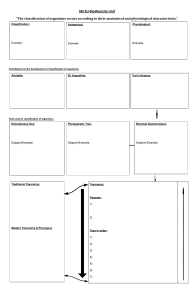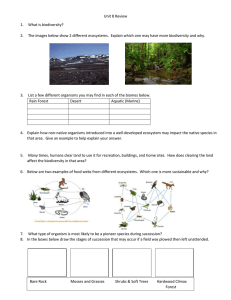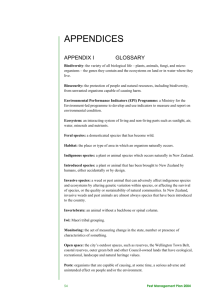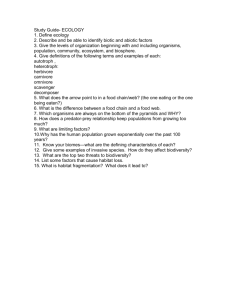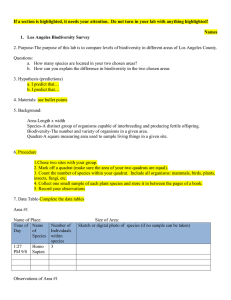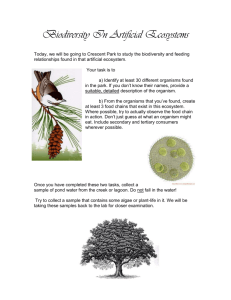Uploaded by
Vince Iori Uy
Biodiversity, GMOs, Climate Change Summary Notes
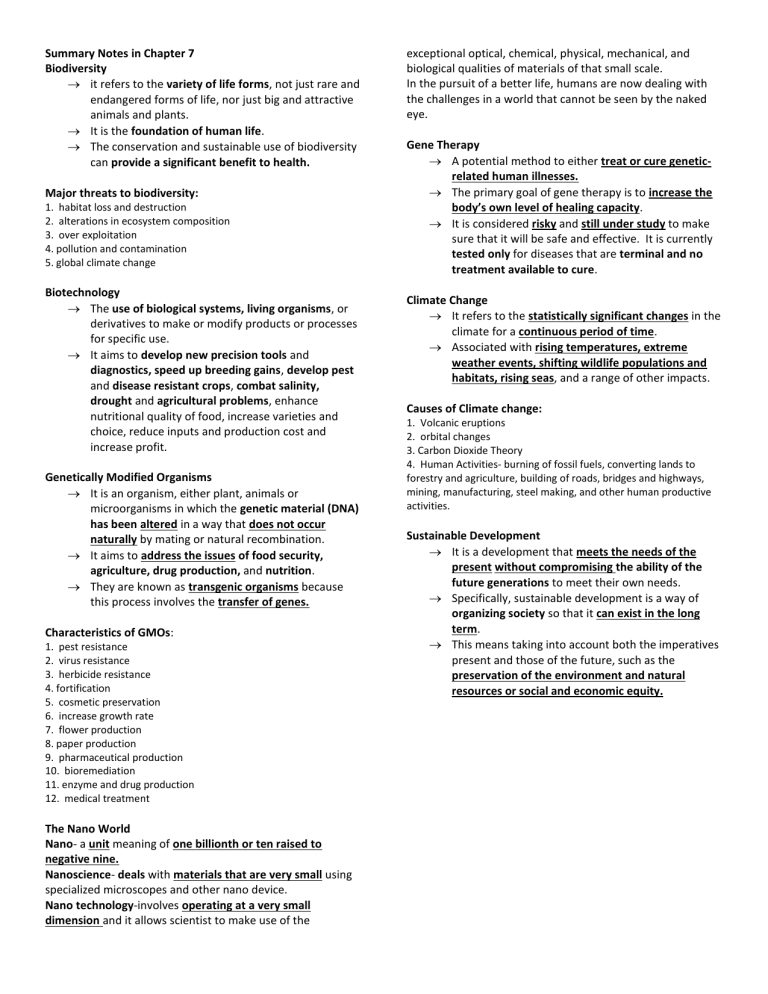
Summary Notes in Chapter 7 Biodiversity → it refers to the variety of life forms, not just rare and endangered forms of life, nor just big and attractive animals and plants. → It is the foundation of human life. → The conservation and sustainable use of biodiversity can provide a significant benefit to health. Major threats to biodiversity: 1. habitat loss and destruction 2. alterations in ecosystem composition 3. over exploitation 4. pollution and contamination 5. global climate change Biotechnology → The use of biological systems, living organisms, or derivatives to make or modify products or processes for specific use. → It aims to develop new precision tools and diagnostics, speed up breeding gains, develop pest and disease resistant crops, combat salinity, drought and agricultural problems, enhance nutritional quality of food, increase varieties and choice, reduce inputs and production cost and increase profit. Genetically Modified Organisms → It is an organism, either plant, animals or microorganisms in which the genetic material (DNA) has been altered in a way that does not occur naturally by mating or natural recombination. → It aims to address the issues of food security, agriculture, drug production, and nutrition. → They are known as transgenic organisms because this process involves the transfer of genes. Characteristics of GMOs: 1. pest resistance 2. virus resistance 3. herbicide resistance 4. fortification 5. cosmetic preservation 6. increase growth rate 7. flower production 8. paper production 9. pharmaceutical production 10. bioremediation 11. enzyme and drug production 12. medical treatment The Nano World Nano- a unit meaning of one billionth or ten raised to negative nine. Nanoscience- deals with materials that are very small using specialized microscopes and other nano device. Nano technology-involves operating at a very small dimension and it allows scientist to make use of the exceptional optical, chemical, physical, mechanical, and biological qualities of materials of that small scale. In the pursuit of a better life, humans are now dealing with the challenges in a world that cannot be seen by the naked eye. Gene Therapy → A potential method to either treat or cure geneticrelated human illnesses. → The primary goal of gene therapy is to increase the body’s own level of healing capacity. → It is considered risky and still under study to make sure that it will be safe and effective. It is currently tested only for diseases that are terminal and no treatment available to cure. Climate Change → It refers to the statistically significant changes in the climate for a continuous period of time. → Associated with rising temperatures, extreme weather events, shifting wildlife populations and habitats, rising seas, and a range of other impacts. Causes of Climate change: 1. Volcanic eruptions 2. orbital changes 3. Carbon Dioxide Theory 4. Human Activities- burning of fossil fuels, converting lands to forestry and agriculture, building of roads, bridges and highways, mining, manufacturing, steel making, and other human productive activities. Sustainable Development → It is a development that meets the needs of the present without compromising the ability of the future generations to meet their own needs. → Specifically, sustainable development is a way of organizing society so that it can exist in the long term. → This means taking into account both the imperatives present and those of the future, such as the preservation of the environment and natural resources or social and economic equity.

